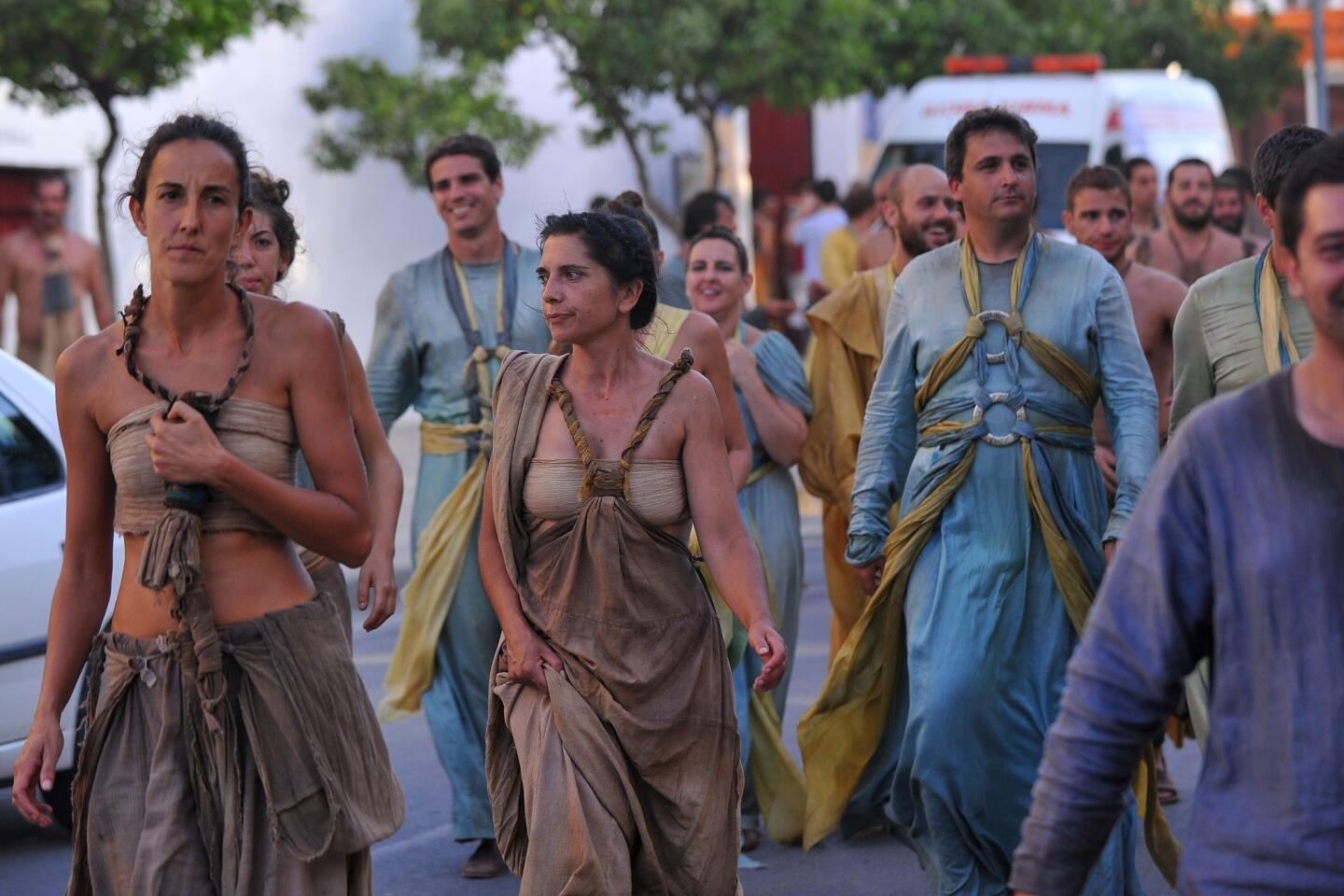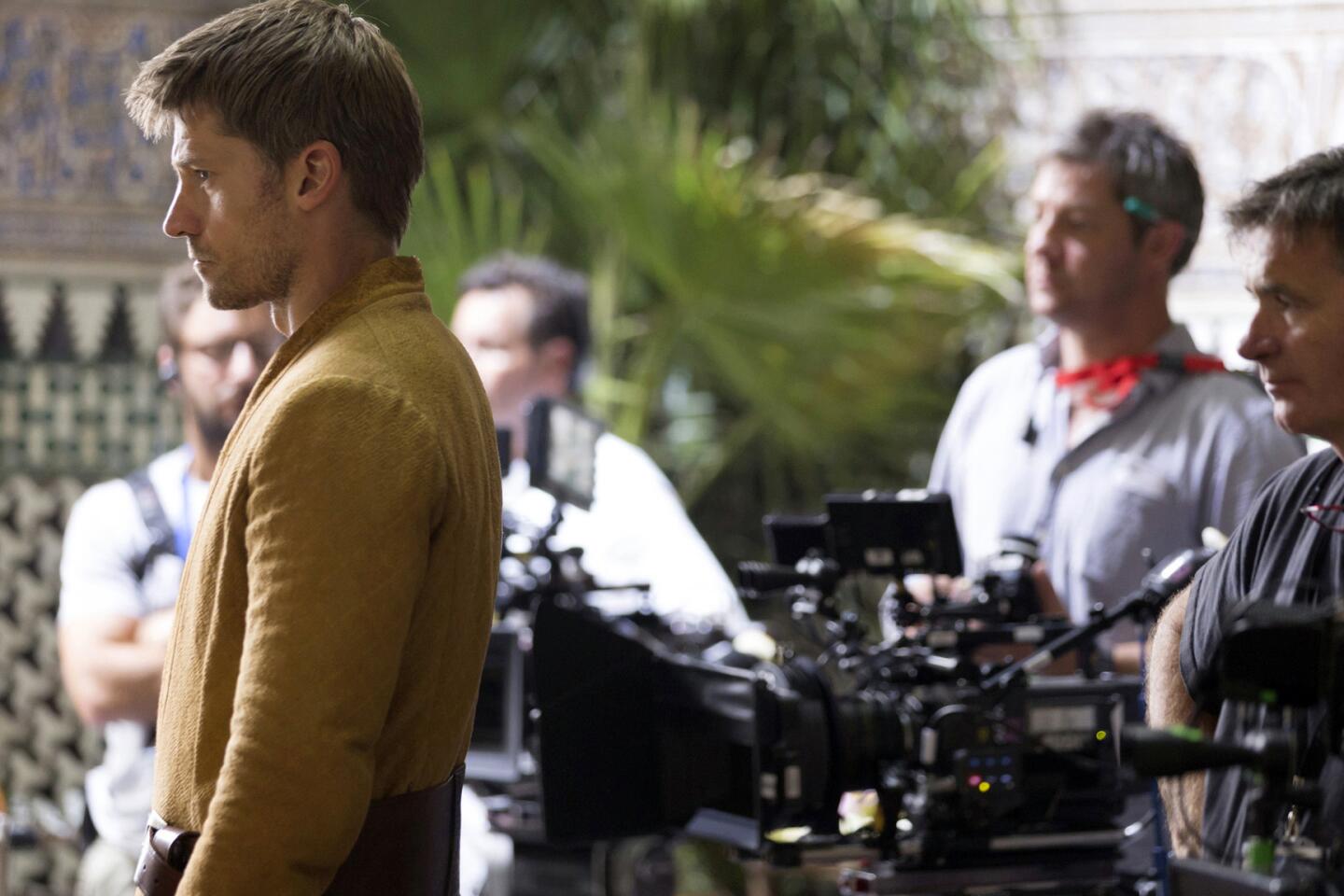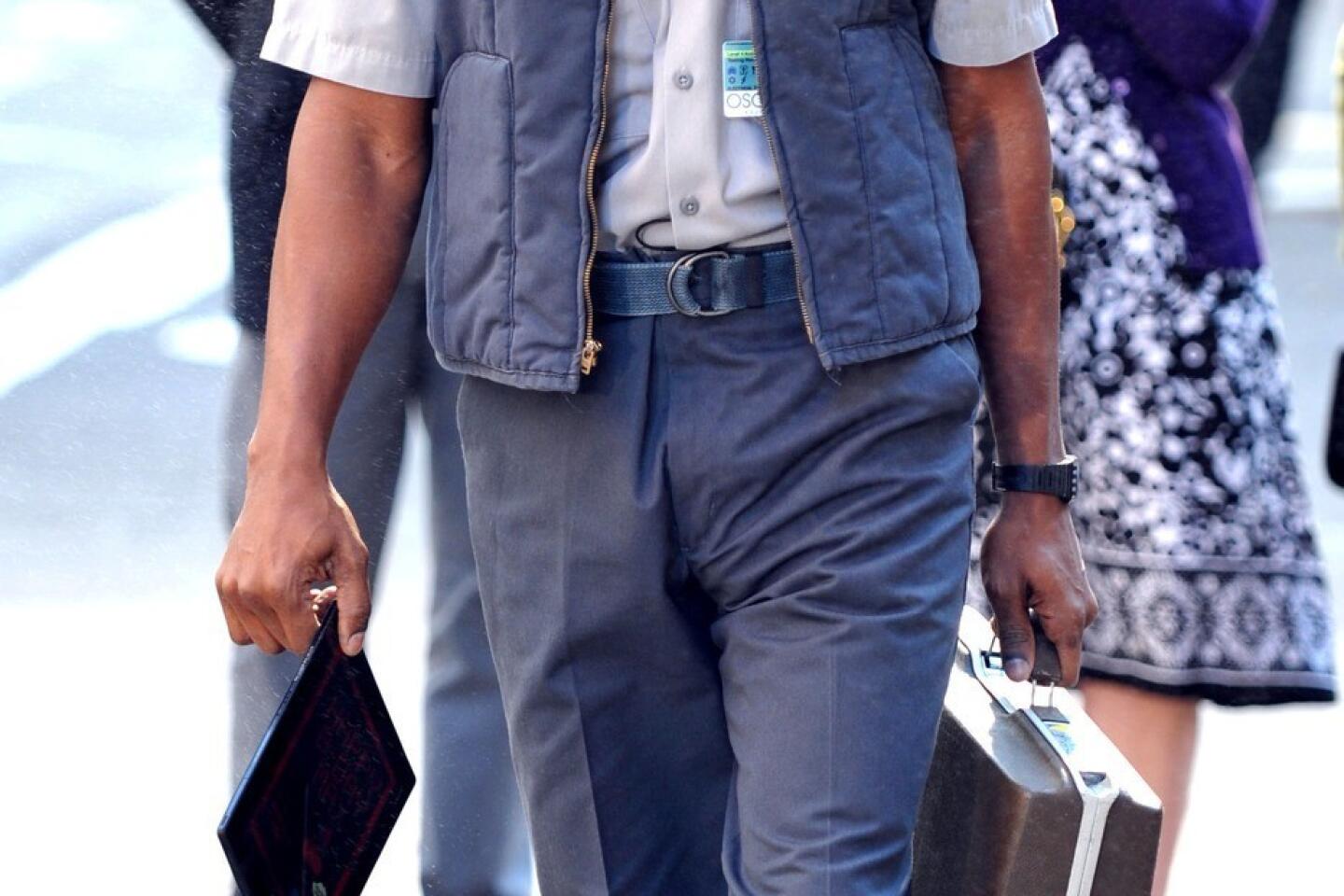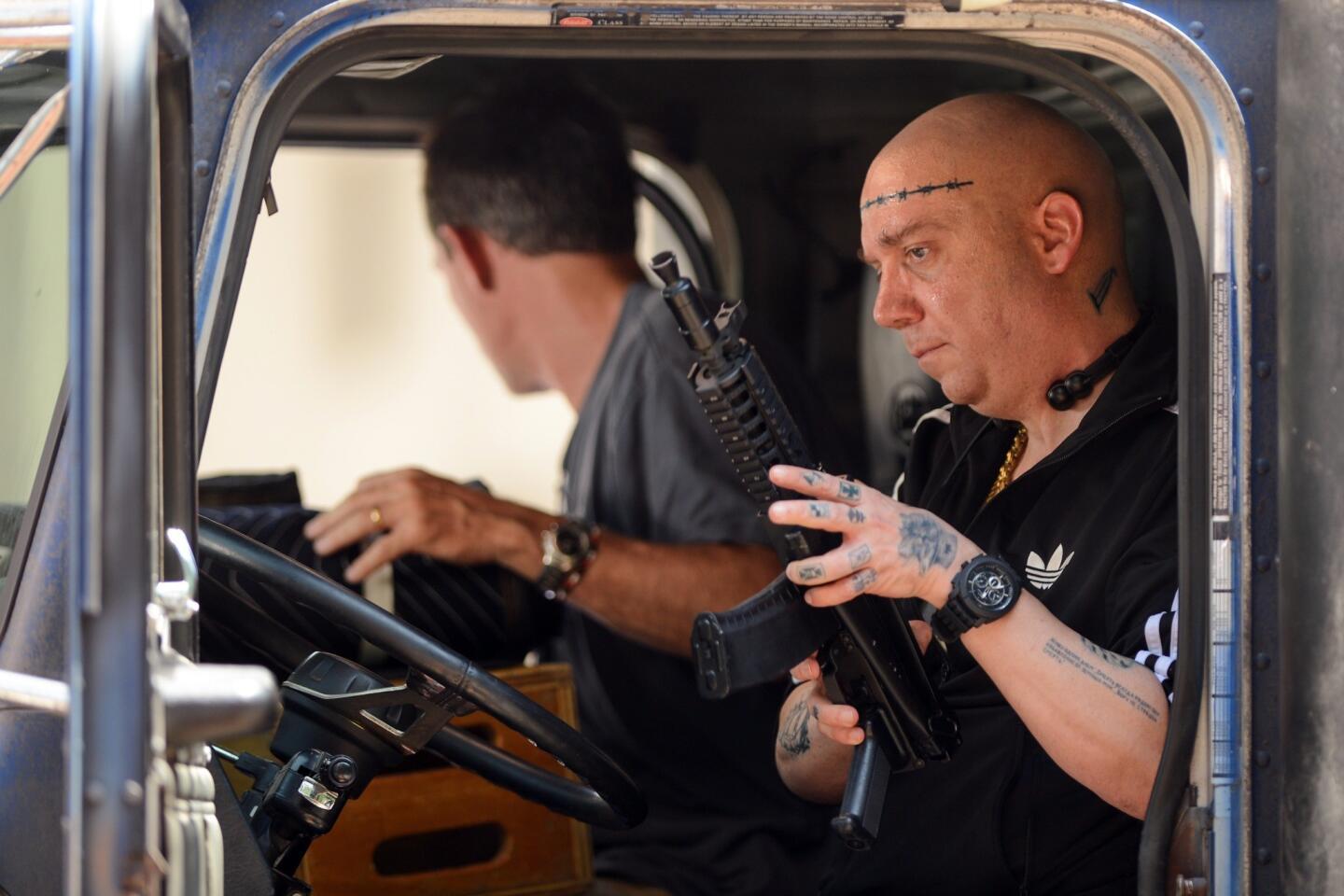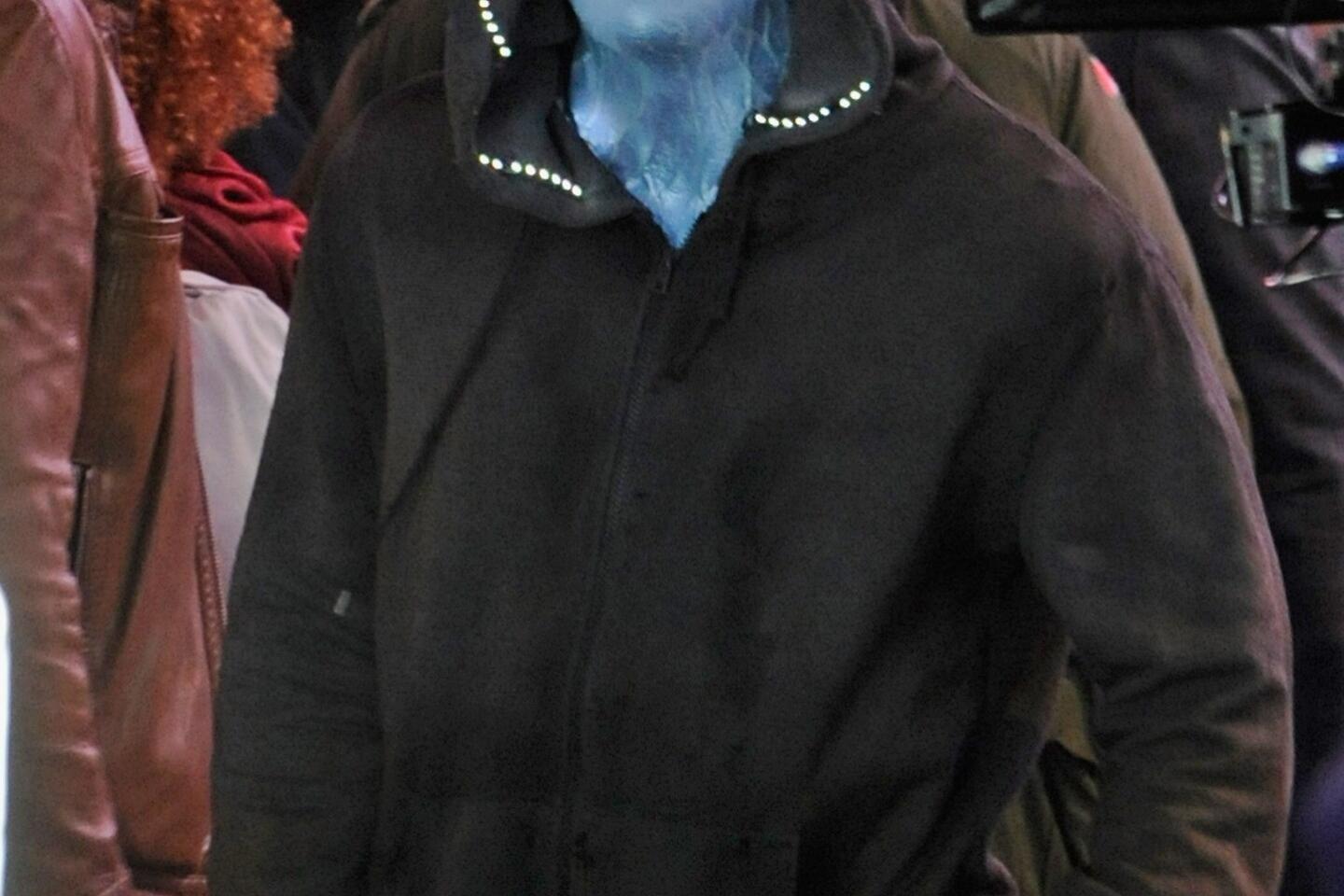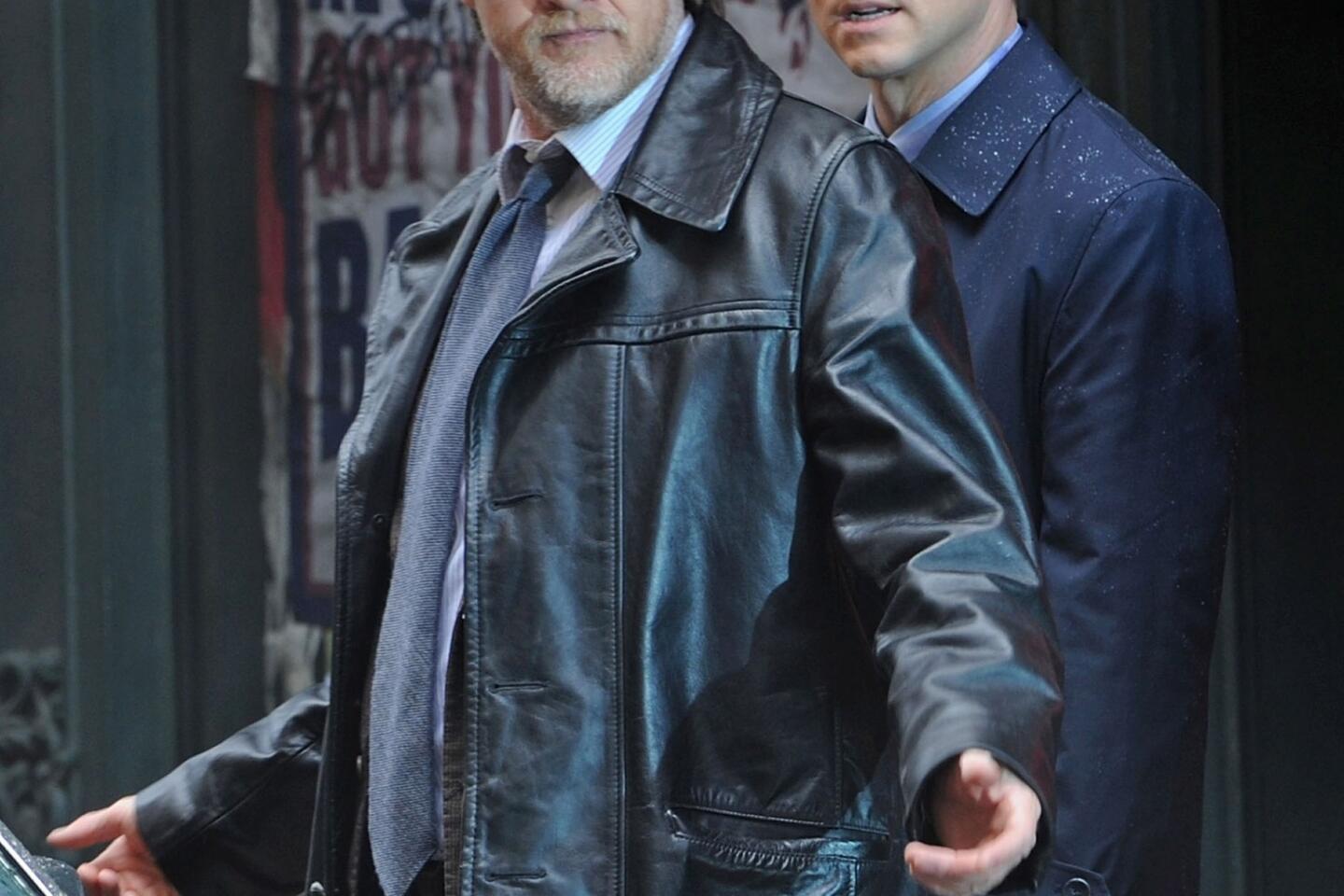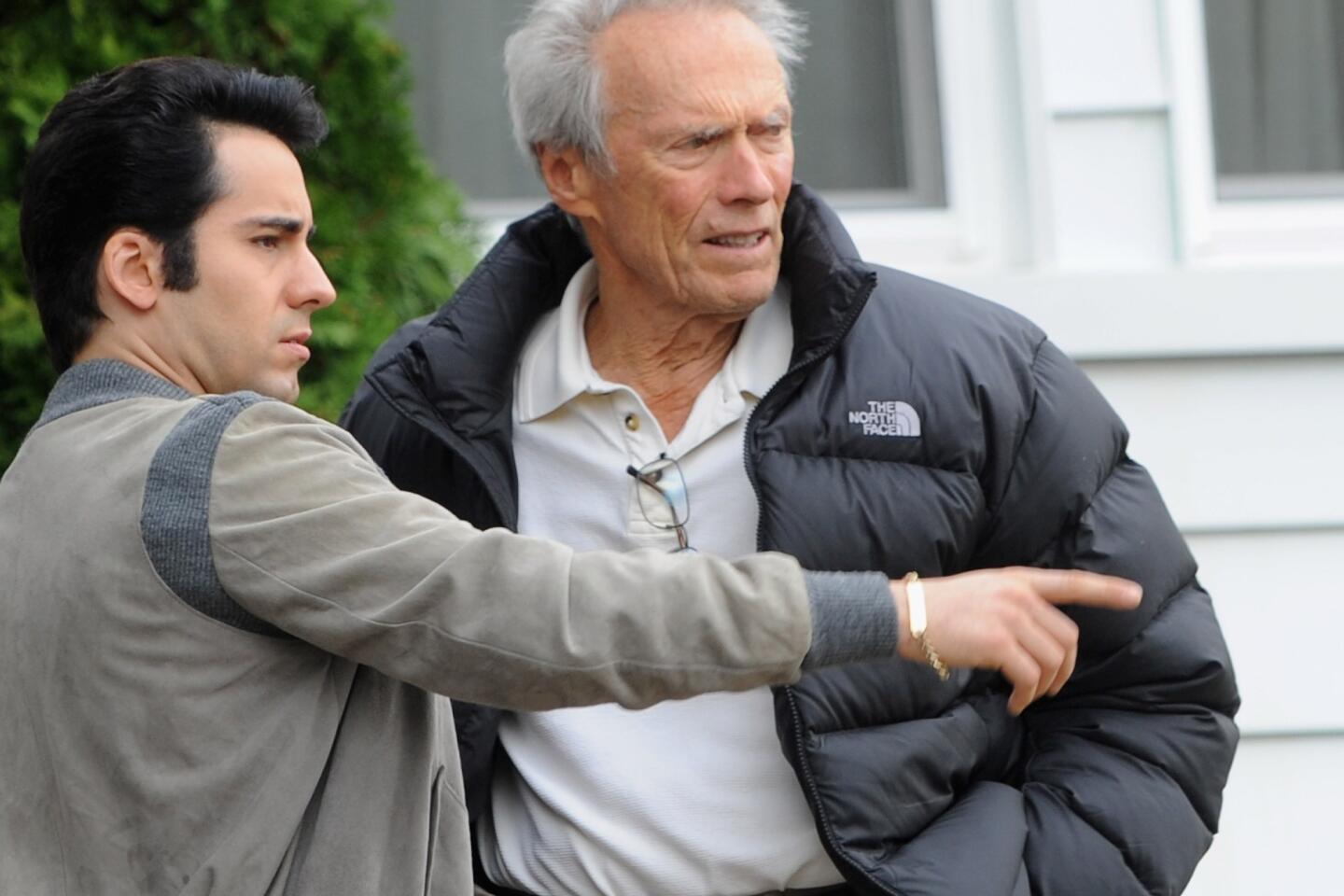Princess of Thailand courts Hollywood studios
The coming of age of horror cinema in Thailand might seem like an odd subject for the Princess of Thailand to address.
But it was Halloween night, after all, and Princess Ubolratana Rajakanya had good reason to single out the Southeast Asian nation’s growing reputation as a hub for slasher, horror and monster films.
The princess was leading a delegation of Thai officials, including the country’s deputy prime minister and minister of commerce, in their first Los Angeles “road show” to promote the country’s resources, talent and desirability as a film location.
The two-day event included a symposium in Century City as well as “business matching meetings” with U.S. companies. It culminated in a “Thai Night Halloween Special” in Santa Monica presided over by the princess, who sounded more like a film commissioner than a member of Thailand’s royal family.
ON LOCATION: Where the cameras roll
“Through training, technological investments and exposure to foreign productions, the Thai film industry is now firmly established as one of the most dynamic and reliable production platforms in Asia,” Princess Ubolratana said at the reception at JW Marriott Santa Monica Le Merigot.
“Already famous for its stunning locations and the friendliness of its people, Thailand is now offering highly skilled crews and state-of-the-art production, post and special effects services, at very competitive prices,” added the princess, who wore a black cocktail dress and a large, festive bow in her hair.
Thailand is the latest Asian country to roll out the red carpet for Hollywood. But it is playing catch-up.
Companies in India and China have already formed partnerships with a number of studios such as DreamWorks Animation, Walt Disney Studios and 20th Century Fox. They’ve also become key sources of low-cost labor for the outsourcing of animation and visual effects work.
PHOTOS: Billion-dollar movie club
Still, Thailand has a well-established film industry with state-of-the-art animation studios and production facilities. The nation’s film and TV industry directly contributes $2.22 billion to the local economy, supports 86,600 jobs and generates $81 million in tax revenue, according to a recent study prepared by Oxford Economics. Homegrown movies, such as the 2004 horror film “Shutter,” have been adapted in many countries.
This year alone, about 550 foreign productions filmed in Thailand, according to the country’s film office. Its exotic geography has served as a location for such well-known movies as the Oscar-winning “The Deer Hunter” (1978), “Good Morning Vietnam” (1987) and the 1974 James Bond film “The Man With the Golden Gun.”
More recent Western films that have shot in Thailand include “The Hangover Part II”; the crime drama “Only God Forgives,” starring Ryan Gosling; and “The Impossible,” in which Naomi Watts and Ewan McGregor play tourists caught in the aftermath of the 2004 Indian ocean tsunami.
“They have superb resources, they’re enthusiastic and they’re hardworking,” said Lawrence Sher, director of photography for “The Hangover Part II,” which filmed for three months in Thailand, mainly in the capital of Bangkok. “We really had a great experience with the Thai crew.”
PHOTOS: Greatest box office flops
Encouraged by such testimonials, Thai film industry officials who visited L.A. last week are eager to drum up more business in advance of the annual American Film Market.
The visiting Thai delegation included representatives from some 20 Thai film, animation and visual effects companies eager to build relationships with producers and studios to distribute their films, establish co-production deals and serve as a source of outsourcing talent. They held a series of meetings with executives at Sony and other studios last week as part of a program coordinated by entertainment attorney and producer Don Barton, owner of Los Angeles-based Artistry Media Group.
Thailand faces some stiff competition, however. In the animation field, studios already have long-standing relationships with companies in South Korea, India, Canada and New Zealand.
“They can be a very important market for animation production, but they’re not there yet,” said Cort Lane, vice president of animation development and production for Marvel Television, a participant in a panel at last week’s symposium.
PHOTOS: Celebrities by The Times
“The capacity and the talent is there, but they are going to have to do a lot of work to build a reputation and build relationships,” Lane added. “I think this event and more events like it will set the groundwork for those relationships.”
Thailand does not offer a film tax credit program, though it does waive income taxes on salaries paid to actors and is weighing further financial inducements.
“We might have to consider a more attractive incentive package, but we are just getting started,” said Niwatthamrong Boonsongpaisan, deputy prime minister and minister of commerce for Thailand. “We have good locations, beaches, the forests, culture and we also have skilled crew people at low cost.”
After her speech, Princess Ubolratana wished the crowd a happy Halloween and sat down to watch a performance of traditional Thai dancers. When the dance was over, the room went silent as the princess left the crowd and walked down a red carpet as her subjects bowed, curtsied and clasped their hands in respect.
More to Read
From the Oscars to the Emmys.
Get the Envelope newsletter for exclusive awards season coverage, behind-the-scenes stories from the Envelope podcast and columnist Glenn Whipp’s must-read analysis.
You may occasionally receive promotional content from the Los Angeles Times.

